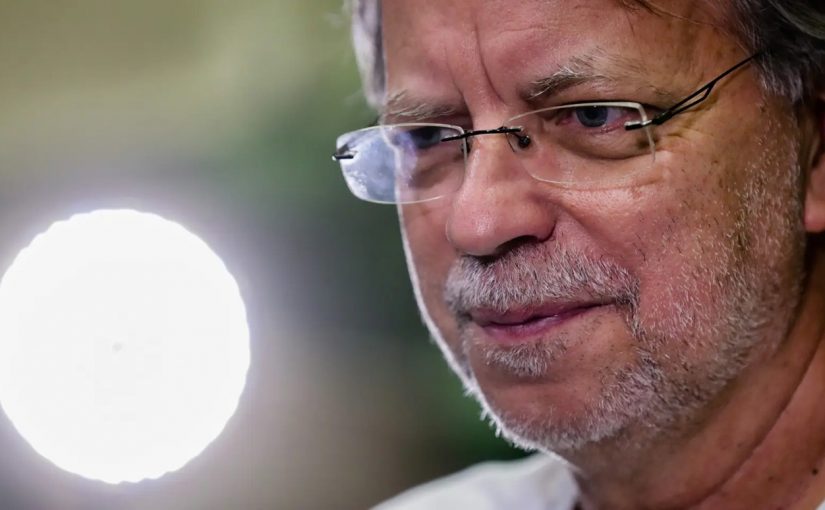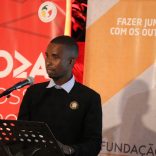Mozambique: Zacarias Nguenha wins Fernando Leite Couto Literary Award
Mozambique: Mia Couto an optimist without hope – interview

File photo: Lusa
Mozambique renowned writer Mia Couto considers that the history of Mozambique’s independence is also his own history and recalls 25 June 1975 as the day when his people gained dignity and a country.
In an interview with the Lusa news agency on the 50th anniversary of Mozambique’s independence, Mia Couto said that he sees it as his own history, as he is ‘a little older’ than the country of the capulanas.
‘When the country was born, I was almost 20 years old. I know what existed before, before independence; I know the leap we’ve made regarding people’s dignity,’ he said, recalling that before 1975, most Mozambicans were considered indigenous.
This is a memory that most Mozambicans under the age of 35 don’t have, which makes it impossible for them to make comparisons and, therefore, to experience the festival in the same way, he said.
‘My vision is a positive one, because even with all the failures and a dream that hasn’t been realised in the collective sense, there’s no comparison with what went before. We didn’t have a country before. Now we have a country,’ he said.
Mia Couto recalled that, until independence, ‘most of the people in the city [of Beira] didn’t even have shoes to wear’.
‘It was almost a relationship of invisibility. Apart from a few small groups of assimilated people – who were called that, but it was a tiny number – everyone else was indigenous and therefore invisible, they didn’t vote. That’s a difference to be proud of, just like the Portuguese language, which has made a huge leap forward.’
‘Mozambique did for the Portuguese language what 500 years of colonial relations didn’t do,’ said the writer, who last Wednesday took part in the closing ceremony of the 19th edition of the LeV – Literatura em Viagem literary festival in Matosinhos.
The author of ‘Terra Sonâmbula’ believes that the goal set in 1975 of changing the world and redistributing happiness in a generation or two resulted from ‘a certain naivety’. However, it remains ‘a value that cannot be forgotten’.
‘The dream is right, it’s still right, but you have to realise that no country, African or otherwise, has managed, in those 50 years, to fulfil this desire for everyone to have a school, health, housing, etc., in a fair way,’ he said.
He blames the war that ‘lasted 16 years and destroyed everything’ for much of what remained undone, but also economic relations: ‘African countries, not just Mozambique, continue to supply raw materials to other [countries] that then resell them once they have been manufactured; and this relationship has not changed,’ he said.
Mia believes that unless this relationship changes radically, Africans will not be able to accumulate enough wealth for social assistance and a capable welfare state.
The writer, a biologist by training, recalls that more than half his life has been spent at war and that the period of ‘enormous violence’ following the October 2024 elections in Mozambique shows that the dream of living in peace is still far off.
He sees himself as a ‘hopeless optimist’, not only because of the situation in his country, but also because of the international context, which ‘doesn’t help’.
On 25 June 1975, Mia Couto was a 19-year-old journalist who had been assigned to a radio station. He fled with other colleagues to Machava Stadium, where independence was to be proclaimed.
Due to a delay in the arrival of the entourage led by Samora Machel, who would go on to become the country’s first President, the young reporter was included in the entourage of notables who were to take the podium.
50 years after that day when Mozambique left ‘the back seat of life’, Mia Couto says he has no hard feelings.
‘I have no resentment, nor am I bitter about anything. I think those lessons are part of how I’m happy today.’












Leave a Reply
Be the First to Comment!
You must be logged in to post a comment.
You must be logged in to post a comment.